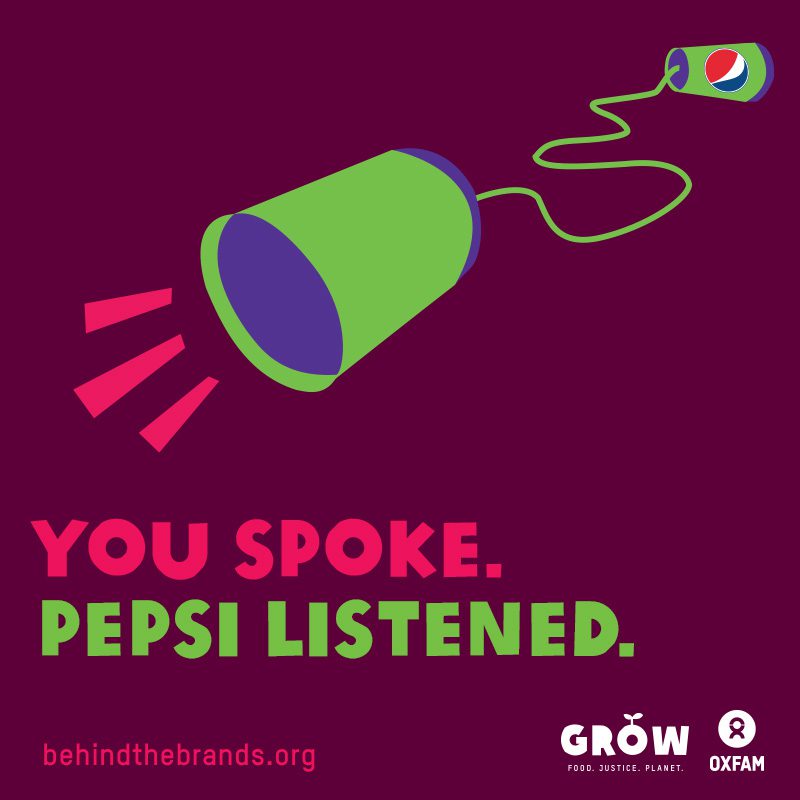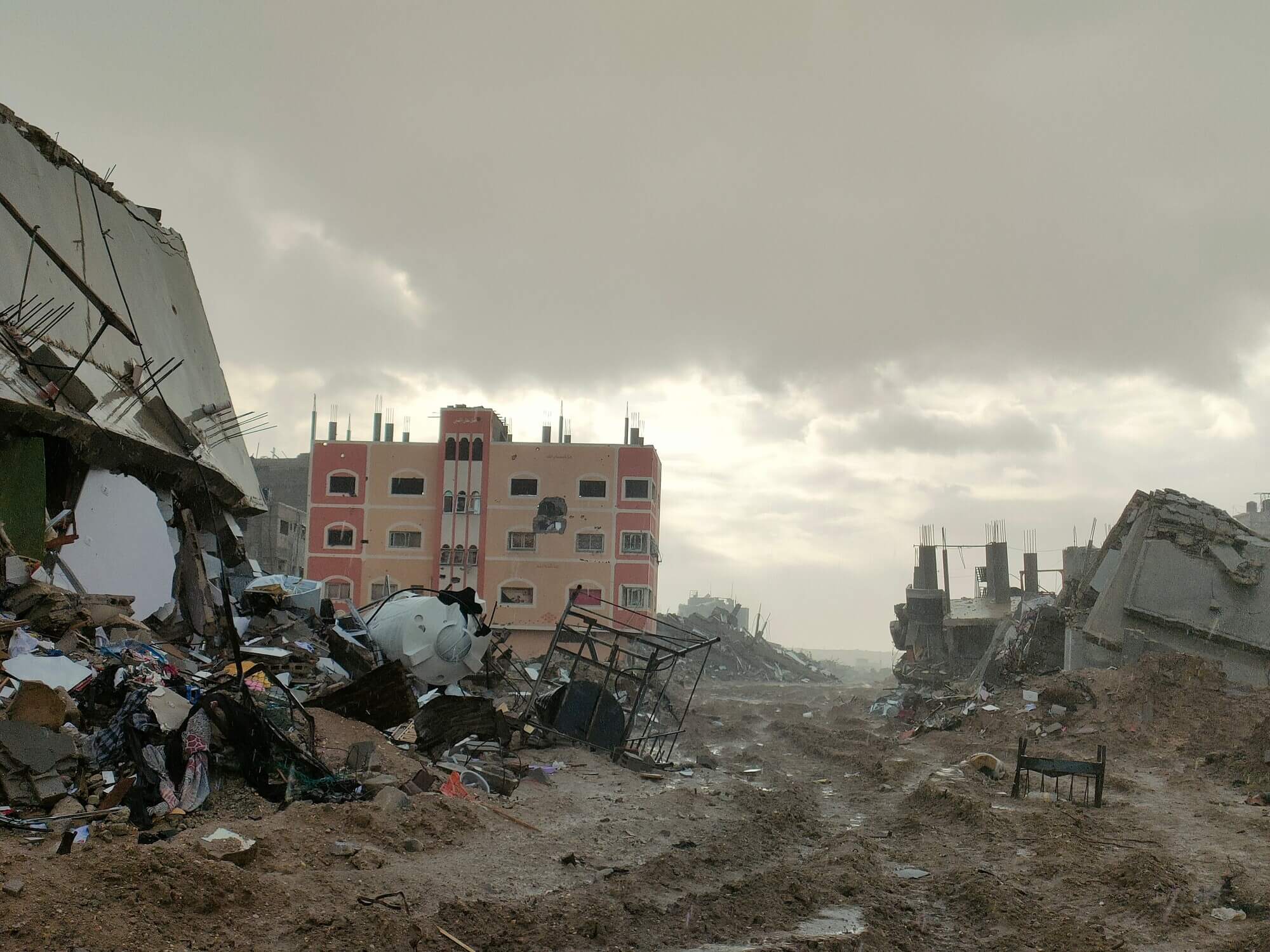When enough of us speak out, companies listen. Today PepsiCo proved this.
“Consumer power just got a little bit stronger” Winnie Byanyima, Executive Director of Oxfam International.
After nearly 6 months of campaigning, the world’s second largest food and drink company, PepsiCo has agreed to a zero tolerance policy on land grabs and for its bottlers to do the same.
PepsiCo’s announcement comes on the heels of similar commitments made by the Coca-Cola Company in late 2013, just one month of your campaigning.
Associated British Foods (ABF) – which own brands Twinings and Ovaltine – the other company you’ve been calling on to act, recently created new policies committing to the principle of free, prior and informed consent (FPIC). This will help ensure communities are consulted and give consent before the land they use is sold. Oxfam is currently in dialogue with ABF-owned Illovo, the largest sugar producer in Africa, to encourage them to take further steps to implement this policy.
So what exactly have PepsiCo committed to?
Oxfam welcomes PepsiCo’s commitment to “zero tolerance” for land grabbing, including commitments to:
- Adhere to the principle of Free, Prior and Informed Consent and require that its suppliers, including bottlers, do the same.
- Disclose the top three countries and suppliers of its cane sugar.
- Conduct and publish social, environmental and human rights assessments, including into land conflicts
- Engage with governments and international bodies to support responsible land rights practices.
- Engage with suppliers regarding the cases in Brazil and Cambodia highlighted by Oxfam’s Nothing Sweet About It report to pursue resolutions that respond to community concerns.
We’ll be closely tracking PepsiCo to make sure they follow through on their promises.
What does this mean for farmers and their communities?
As one of the biggest food and beverage companies in the world, PepsiCo has immense power to influence its suppliers and other companies in the industry. As a result of these commitments, better measures will be taken by PepsiCo to avoid land conflicts that drive farmers off their land and out of their homes.
Importantly, we will monitor the actions the company takes to follow through on this commitment. In particular we will continue to advocate, along with local partners, for appropriate resolution for the communities in Brazil and Cambodia who continue to struggle to regain the rights to their land. Other companies must now follow PepsiCo and Coca-Cola’s lead and transform the industry’s approach to land rights.
Without your voices, this would not have happened. So we need you to be ready to speak out again in May when we launch our next action to stop climate change making people hungry.



